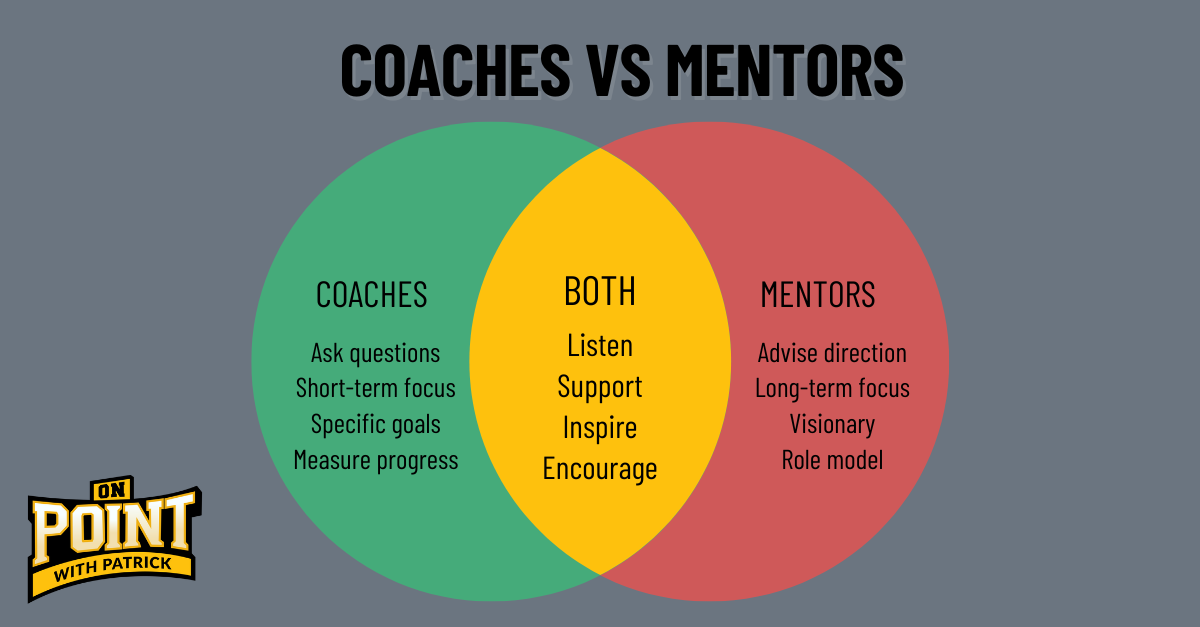In the dynamic landscape of personal and professional development, coaching and mentoring are two widely recognized approaches that empower individuals to achieve their goals. While both involve guidance and support, they differ in their methodologies, goals, and the nature of the relationship between the mentor or coach and the individual seeking guidance. Understanding the distinctions between coaching and mentoring is crucial for individuals seeking assistance in various aspects of their lives.
Coaching
Coaching is a goal-oriented and task-focused process designed to enhance an individual’s performance and skills. It is typically short-term and revolves around specific objectives, such as improving leadership skills, overcoming challenges, or achieving career milestones. Coaches are often external professionals trained to ask probing questions, provide feedback, and offer guidance to help the individual develop and implement effective strategies.
Key Characteristics of Coaching
Goal-Oriented: Coaching revolves around specific, measurable, and time-bound goals. The coach and coachee work collaboratively to identify objectives and create action plans.
Task-Focused: The focus in coaching is on tasks and actions. Coaches help individuals identify and implement concrete steps to achieve their goals.
External Perspective: Coaches typically come from outside the individual’s immediate work environment. This external perspective brings objectivity and fresh insights to the coaching process.
Structured Approach: Coaching sessions follow a structured format with clear agendas, milestones, and measurable outcomes. The emphasis is on progress and results.
Mentoring
Mentoring, on the other hand, is a relationship-based and long-term process that goes beyond immediate goals. Mentors, often more experienced individuals in a particular field, guide and support the mentee’s overall professional and personal development. The mentorship relationship is characterized by trust, shared values, and a commitment to nurturing the mentee’s growth.
Key Characteristics of Mentoring
Relationship-Focused: Mentoring is built on a relationship of trust and mutual respect. Mentors provide guidance not only on specific tasks but also on broader aspects of personal and professional development.
Long-Term Perspective: Unlike coaching, mentoring is often a long-term relationship that extends beyond immediate goals. Mentors invest time in understanding the mentee’s overall development.
Holistic Development: Mentoring addresses various aspects of the mentee’s life, including career goals, personal growth, and work-life balance. It goes beyond the immediate professional challenges.
Experience-Based Guidance: Mentors share their experiences and insights to help mentees navigate challenges, make informed decisions, and develop a deeper understanding of their chosen field.
In summary, while coaching and mentoring share the common goal of fostering personal and professional growth, they differ in their focus, duration, and the nature of the relationship between the guide and the individual seeking guidance. Whether one opts for coaching or mentoring depends on the specific needs, goals, and preferences of the individual. Both approaches, when applied effectively, can be powerful tools for unlocking human potential and facilitating success in various aspects of life.
Use the link below to schedule your one on one coaching discovery call.
https://calendly.com/patrickjbritton/coaching-discovery-call








